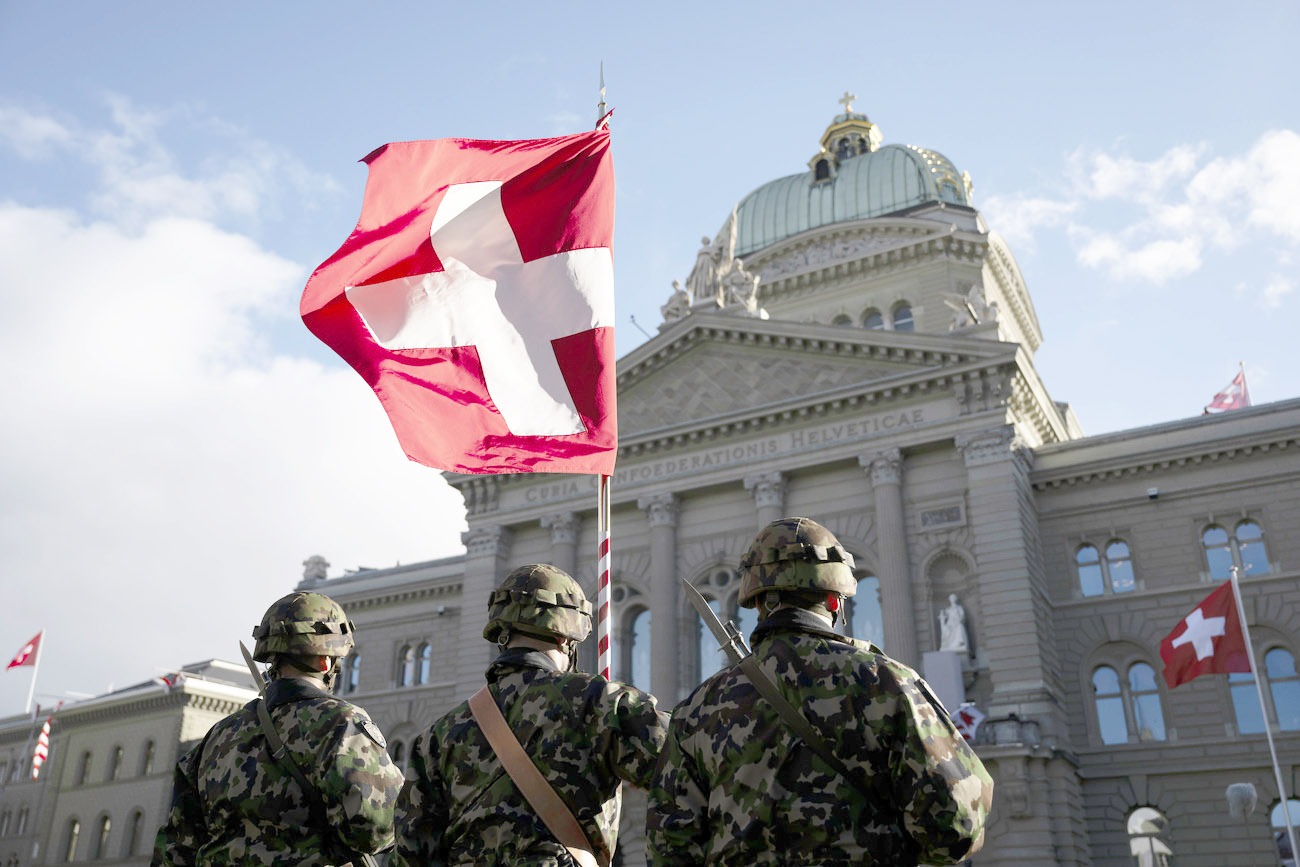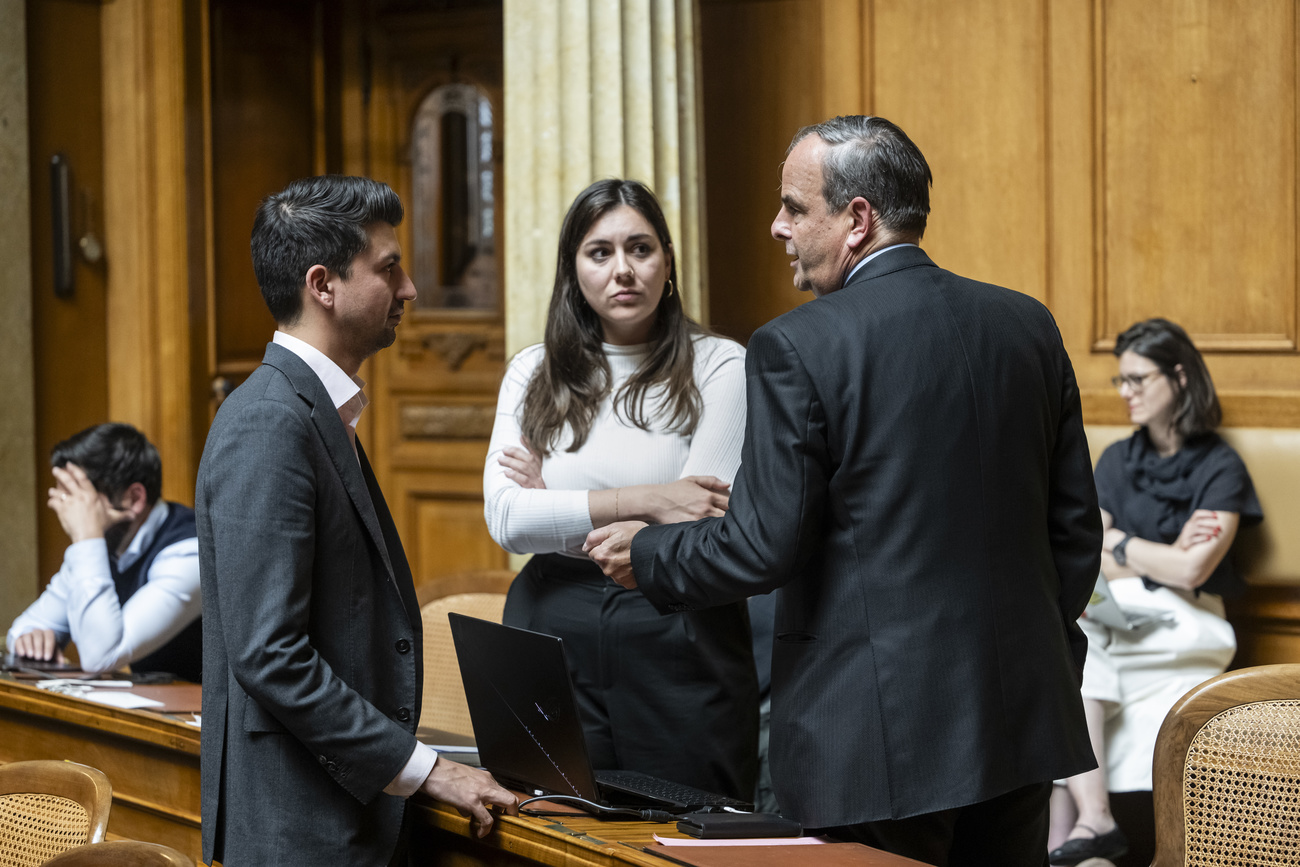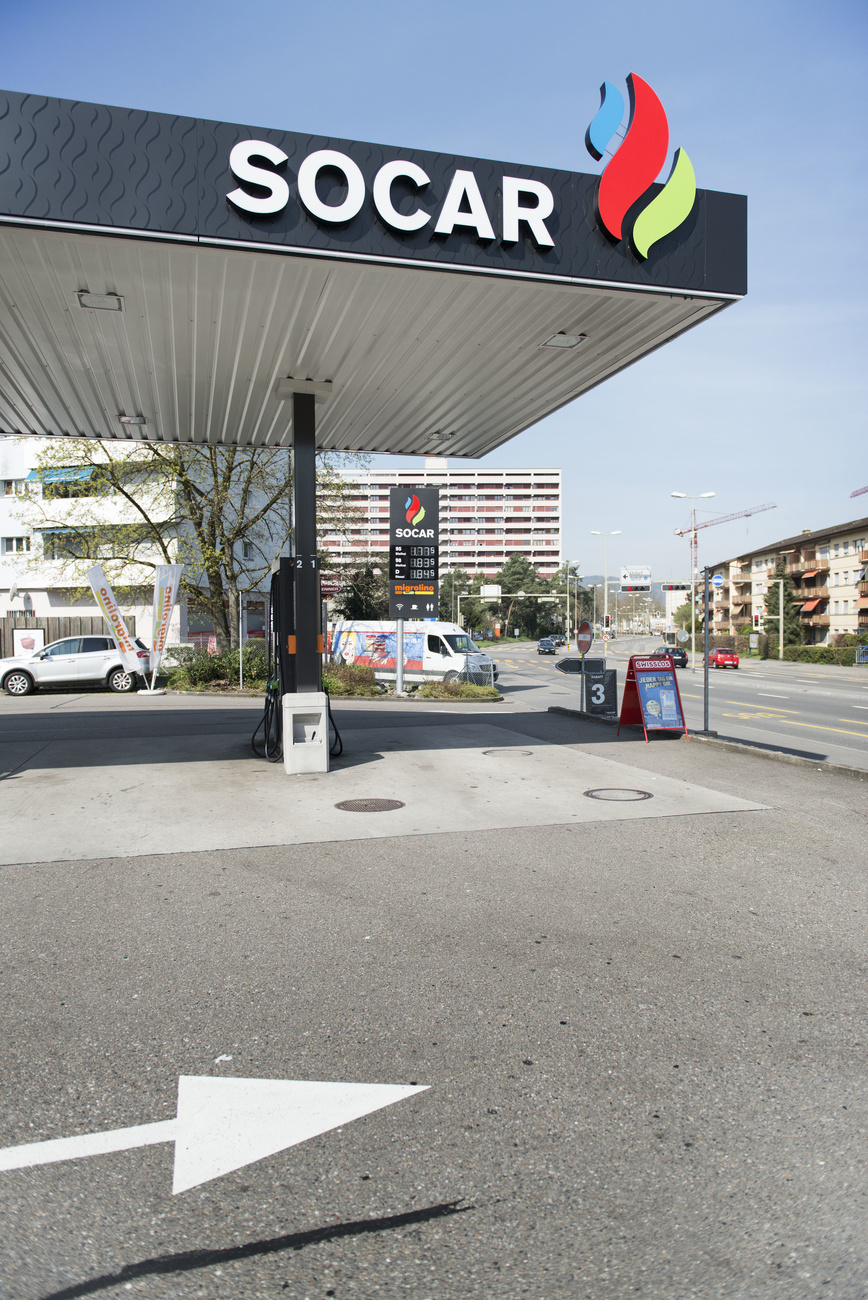What you need to know about the Swiss autumn parliamentary session

The Swiss parliament is meeting in Bern for the autumn session that will focus mainly on foreign policy and defence issues. Increasingly parliament also wants to know about how foreign countries use their influence in Switzerland. Here is quick preview of what’s on the agenda.
Of concern to Swiss Abroad
In the Senate, opposition is emerging to a proposal which at the outset seemed like a formality. This is the issue of family reunification for Swiss citizens with relatives abroad. It concerns Swiss returnees who wish to have their in-laws join them from foreign countries.
Currently, European Union citizens have more rights on this matter than Swiss. The situation discriminates against Swiss residents, anda proposal was made to resolve this anomalyExternal link which the House of Representatives adopted by a clear majority during the summer session. But now in the Senate the result is in doubt, since the committee dealing with it is recommending rejection. They say it is not clear what the implications might be regarding additional immigration.
Doubt now also surrounds the budget for Swiss cultural sponsorship overseas. The House of Representatives committee dealing with this has suggested that the overseas activities of the Swiss Arts Council, Pro Helvetia, be cut by CHF6.5 million. When the document on Cultural diplomacy 2025 – 2028External link is finalised, this will be discussed first in the House of Representatives and then in the Senate.
On the other hand, the electronic identity card project E-ID is still on track. The government’s draft legislationExternal link passed through the House of Representatives in spring with a convincing majority (175 in favour, 12 against). It now goes to the Senate, and the committee that has studied it is recommending acceptance.
So, three years after the failure of the first attempt, the E-ID may be ready to be issued in 2026. For Swiss Abroad this would make interactions with government departments and perhaps also banking easier. The Organisation of the Swiss Abroad (OSA) views the E-ID as a necessary first step towards a comprehensive e-voting system for Switzerland.
The House of Representatives will also discuss an updated double taxation treaty with Serbia.
Switzerland and the EU
Negotiations between Bern and Brussels are going on at the moment. Not much has leaked out, but politicians have been finetuning their arguments over the summer. Apart from the Swiss People’s Party and its customary hostility to the special relationship with the EU, Centre Party leader Gerhard Pfister has been calling in interviewsExternal link for more control of immigration. In parliament, Liberal-Radical Party leader Thierry Burkart has been asking for more detail about what Switzerland might be letting itself in for if it undertakes to “dynamically adopt” developments in EU law.

Meanwhile, on another EU-related front the federal government is under pressure from four cantons which have put forward the same initiativeExternal link. Vaud, Ticino, Jura and Fribourg are demanding that federal ministers “take the necessary steps right away so that Switzerland can continue to participate in the EU’s Horizon Europe research and innovation programme”.
In reality, the government has little room for manoeuvre when it comes to the Horizon scheme. The EU has turned Swiss participation in this grant-rich programme into a bargaining chip.
“Stabilising and further developing Switzerland’s relationship with the European Union is key,” according to the government’s Foreign Policy Strategy 2024 – 2027, which will also come before the two legislative chambers for discussion this autumn session.
Swiss foreign policy beyond the EU
The Strategy for international cooperationExternal link is likely to face tougher discussions than the rest of foreign policy. The government’s plan to fund a contribution to the reconstruction of Ukraine out of the development aid budget has been making waves. A total of CHF1.5 billion of the total development budget of CHF11.3 billion has been earmarked for this, which has sparked opposition.
The reconstruction budget is also set to favour Swiss business, with companies encouraged to become active in Ukraine. The foreign policy committee of the Senate has raised doubts about this “preferential treatment for the Swiss private sector”. There was no recommendation in the end. SWI swissinfo.ch published an interview with Swiss State Secretary for Economic Affairs, Helene Budliger-Artieda, on this issue.
Swiss foreign policy is also the subject of two motions brought before the House of Representatives on the war in Gaza and in particular Swiss contributions to the United Nations Relief and Works Agency for Palestine Refugees in the Near East (UNRWA), One wants to stop these payments altogetherExternal link, while another proposes to convert them into emergency reliefExternal link.
The House of Representatives could also decide to recognise the Holodomor External linkas genocide with an appropriate declaration. The Holodomor was the 1932 famine caused by the Soviet regime, which resulted in the deaths of six million people in Ukraine and Kazakhstan.
Russia’s war on Ukraine will also be a topic for discussion in the Senate. The Centre Party has called for greater non-military involvementExternal link by Switzerland.
There will also be a debate in the Senate on a motion that calls for greater oversight when Switzerland buys credits overseas to make up for CO2 emissions at home. Switzerland is compensating for 50 million tonnes of CO2 emissions via environmental projects in other countries. But it is feared that this could lead those countries to neglect their own climate goals. “In this way the achievement of global climate goals might be held back by Swiss climate policy,” according to the motion fromExternal link the Liberal Greens.
Foreign activities in Switzerland
There will also be a debate on the activities of foreign actors in Switzerland. This issue has been raised by the Investment review billExternal link that will come before the House of Representatives. The federal government hopes this bill will prevent takeovers of domestic businesses by foreign investors if they endanger or threaten the vital interests of Switzerland. The focus is on sectors such as armaments, telecoms, energy, water and transportation.
A motionExternal link by left-wing parliamentarians is also on the horizon which aims to prevent foreign investors from buying up Swiss hydroelectric projects and electricity and gas grids.
Parliament is also taking an interest in the network of petrol stations run by the state oil company of Azerbaijan, called Socar. Azerbaijan uses a network of 200 petrol stations in Switzerland to sell its petroleum here. A parliamentary initiativeExternal link aims to provide Switzerland with the means to ensure that these petrol stations are not used to finance wars. “Switzerland as a neutral country has every interest in refusing to get involved in financing foreign military forces of states which do not adhere to the UN Charter,” the proposal states.

The security policy committee of the House of Representatives also wants to look into Muslim places of worship that are funded by sources abroad. A proposalExternal link to the government points to a propaganda offensive being carried out by the Turkish religious affairs directorate Diyanet. It is now financing mosques worldwide and prescribing a Turkish nationalist, Islamist line to preachers.
How much money should the Swiss army receive?
The major battle of the autumn session will be fought on domestic policy, especially the funding of the army. Switzerland is under pressure to save money and manage a structural financial deficit. At the same time there is consensus among political parties that Switzerland’s ability to defend itself needs to improve. However, that in itself is not likely to grant an easy passage to the Army policy 2024External link.
During its summer session, the Senate raised the government-proposed figure by CHF4 billion and also proposed that half of the amount should be taken out of the development budget. Now the matter comes before the House of Representatives. Here the relevant committee agreed to the increase in its preliminary discussions, but proposed a different approach to funding involving the cantons. There is bound to be disagreement on this issue.
In the Senate the idea has been raised of a “security premium”External link on top of value-added tax to avoid extraordinary funding solutions. There will therefore be appeals to values and the issue of neutrality is likely to be discussed. A motion from the security policy committee of the House of RepresentativesExternal link calls for Swiss army participation in NATO military exercises to be rejected.
In the meantime, the overall financial outlook of the country has eased slightly. Correcting a major mistake that had crept into the calculations for the future costs of the national old-age pension scheme has brightened the financial picture somewhat. But this is likely to fuel new demands and cause further disputes among the parties.
The autumn session of the two federal houses of parliament in Bern runs from September 9 to 27. SWI swissinfo.ch will be reporting on developments.
Adapted from German by Terence MacNamee/subbed ds

In compliance with the JTI standards
More: SWI swissinfo.ch certified by the Journalism Trust Initiative









You can find an overview of ongoing debates with our journalists here . Please join us!
If you want to start a conversation about a topic raised in this article or want to report factual errors, email us at english@swissinfo.ch.